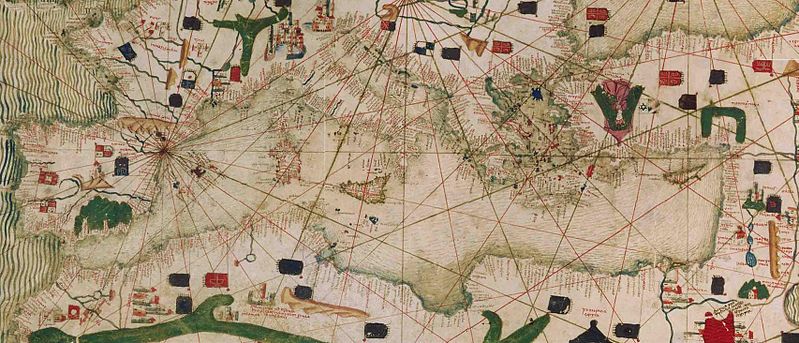
Call for Papers, deadline – 31 August 2022
The Mediterranean has long fascinated scholars interested in premodern cross-cultural exchanges. More than a geographical region, it has often been portrayed as a conduit for cultural transmission between the worlds of Christianity and Islam; as the vital link between the trade networks of Europe, Asia and North Africa; or even as the facilitator of the cohabitation in the Holy Land. Historians of the Mediterranean have been at the forefront of developing rigorous approaches to the study of such cross-cultural interactions. Their recent contributions can be found in volumes such as Cross-cultural Exchanges in World History (2014), edited by Francesca Trivellato. Notably, works such as this one do not artificially provincialise the Mediterranean Sea but instead frame it comparatively within other global conduits of exchange, such as the Atlantic and Indian Oceans. In doing so, these studies of the Mediterranean contribute to a wider conversation on cross-cultural interactions, deconstructing the stereotypical division between a world of perennial conflict in the Middle Ages and early modern period and a more stable contemporary era dominated merely by peaceful exchanges. Such research resonates with Jeremy H. Bentley’s observations that ‘quite apart from inspiring conflict, cross-cultural encounters served as remarkably effective agents of change in the pre-modern world. They encouraged the spread of technologies, ideas, beliefs, values, religions, and civilisations themselves’ (Old World Encounters, 1993, p. 5).
With this in mind, we invite proposals addressing the theme ‘cross-cultural entanglements’ in its broadest sense, considering an ‘entanglement’ as any sort of encounter between persons and entities of different cultural backgrounds. The timeframe of this conference encompasses the period between 1200 and 1600 with the aim of enhancing our understanding of the significant changes, processes and developments that spanned across this period. We welcome all postgraduate (Masters and doctoral) students as well as early career researchers who study cross-cultural interactions in the Mediterranean and beyond, whether in Eastern Europe, North and sub-Saharan Africa, the Americas, and various regions of Asia, or contacts across any cultural or religious ecumene, however defined. Additionally, as the conference hopes to offer a space for interdisciplinary discussion, scholars working in any field of the humanities or social sciences are invited to share their research.
Keynote speakers: Prof. Nora Berend (Faculty of History / St Catharine’s College, University of Cambridge); Dr Catherine Holmes (Faculty of History / University College, University of Oxford).
We are inviting proposals for papers of approximately 15 minutes. Proposals may deal with, but are not limited to, the following suggested topics:
- Economic ties crossing cultural boundaries
- The construction of trust and its limits
- Global intellectual interactions
- Interfaith political and diplomatic relations, negotiations and alliances
- Shared sacred space
- Military conflicts and piracy
- Multiethnic or multireligious social communities
- Diasporic/minority networks and communities
- Perceptions of and discourse regarding the ‘other’
- Settling abroad (empires, communities, polities)
- Maps and explorations
- Cross-cultural transfer of artistic styles or technologies, e.g. gift exchange
- Methodological reflections on the framework of ‘cross-cultural’ research
- Cultural boundaries and the utility and/or limitation of the construct
Each panel will be formed by three speakers, and we are aiming at half an hour of general discussion of the papers. Abstracts of max. 300 words along with a short biography (max. 100 words) should be sent to the conference organisers Stanislaw Banach (Faculty of History / Selwyn College, University of Cambridge), Nicola Carotenuto (Faculty of History / St Hugh’s College, University of Oxford), and Elvira Tamus (Faculty of History / Sidney Sussex College, University of Cambridge) at crosscultural.oxbridge@gmail.com by the 31st August 2022.
The conference is planned as an in-person event where graduate and postgraduate students and early career researchers will have the chance to share, discuss and receive useful feedback on their work. The organisers also hope that the conference will offer attendees the chance to develop a network to share and discuss future research on historical cross-cultural interactions.
Image: https://commons.wikimedia.org/wiki/File:1450_%C2%BF_Carta_Catalana_jpeg_copy.B.jpg
